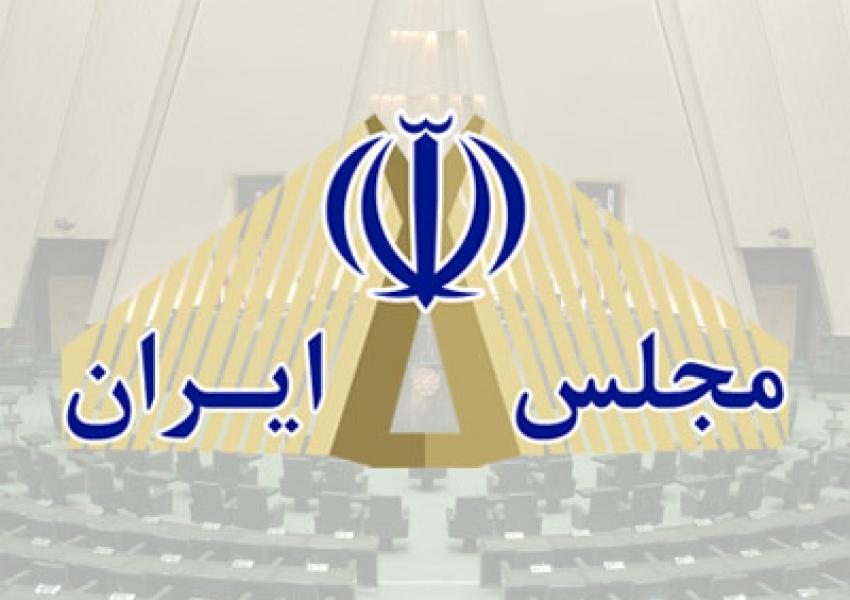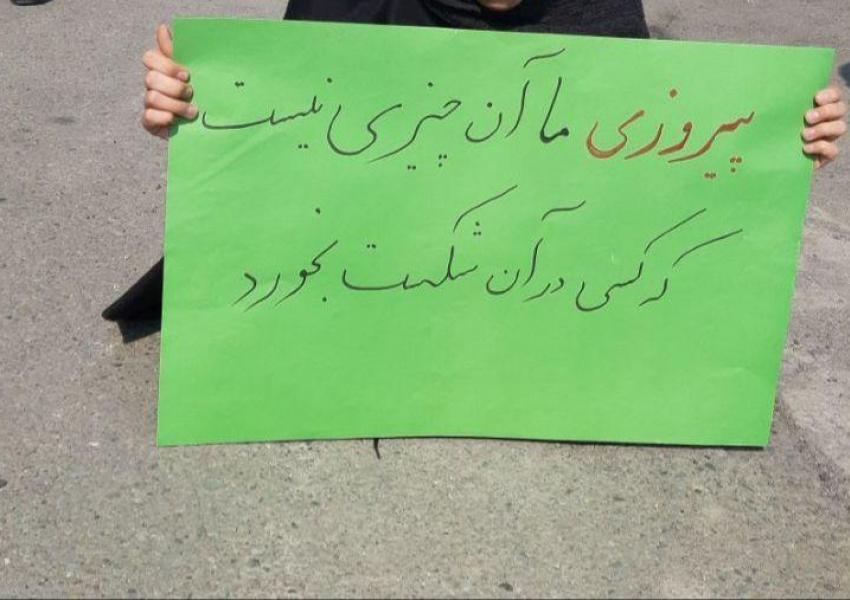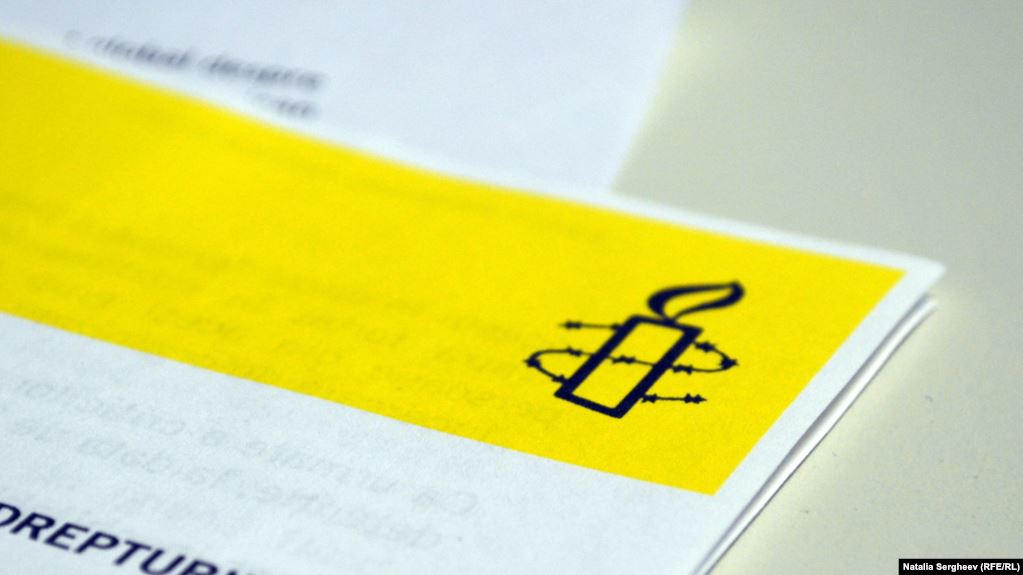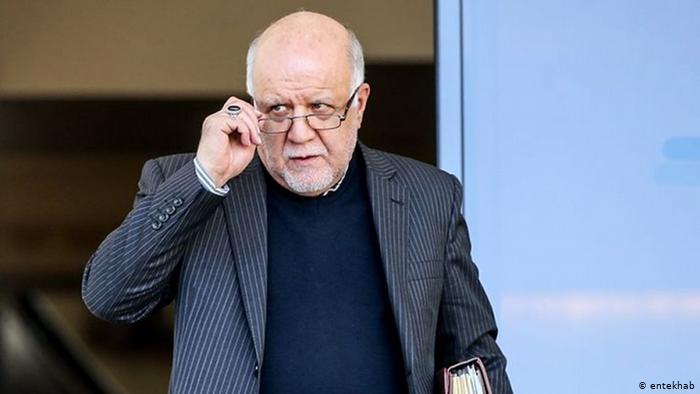
Why Rouhani Doesn’t Care about Public Opinion
The editorial of Jahan Sanat written by the “reformist” academic Sadegh Zibakalam focuses on Iranian President Hassan Rouhani’s disregard for public opinion, trying to explain why he doesn’t care if he loses his popularity.
Rouhani’s recent press conference with international and domestic media represented his first confrontation with public opinion after two bitter incidents over the past three months. He was expected to have something new to say about the November protests, the uncertainties surrounding the death toll, and the downing of the Ukrainian passenger flight.
Not only did Rouhani not have anything new to say regarding the aforementioned, but he also didn’t even try to align himself with the people’s emotions. His smiling expression while reiterating the same remarks regarding human error in the downing of the airplane or his silence on the death toll during the November protests were indicative of this behavior.
To understand why Rouhani is acting like this, he must be closely studied. He has been losing his popularity day by day, so much so that if an election is held tomorrow, he will definitely not gain 24 million votes, he will not even win 240,000 votes. He himself must be aware of this. Even if he himself lives in an ivory tower, his assistants and consultants who live in society must have told him about his declining popularity.
Why doesn’t he care about angering people with his behavior and remarks? To some extent, this goes back to his arrogant nature. Among political figures in Iran before and after the revolution, there has been no one as arrogant as Rouhani. He doesn’t care at all for the opinion of the elite and the people.
The other reason, perhaps, is that he has set other goals for himself after his second term is over, which has nothing to do with the ballot box and public opinion. He might be thinking of a position [i.e. leadership] that doesn’t need public votes. If so, this would explain his behavior as he must please other centers of power if he wants to have the position that he is seeking. This is what he has been doing after the 2017 presidential elections: paying more attention to the centers of power and less attention to the elites, writers, academics, and the people in general.
The “Principlists” Lack a Strategy
As we get closer to the parliamentary elections in Iran, the hardline “principlists” see themselves as the decisive winners of this election, given the disqualification of “reformist” candidates by the Guardian Council. The editorial of Ebtekar explains that the “principlists” have no unanimous strategy for running the country when they take power, as they cannot even agree over the list of candidates in Tehran.
The 11th parliamentary election can be considered a unique, unprecedented opportunity for the hardline “principlists” in Iran. So far, they have never had such an upper hand over the “reformists”. After successive “reformist” victories in different elections during 2013 to 2017, a sudden turn in global and international relations resulted in the tide turning against the “reformists”. Along with these changes, media propaganda resulted in the “reformist’s” support base distancing itself from “reformist” officials and lawmakers.
As a result, the “principlists” are reveling in this situation, calling it a victory for themselves and saying that the 11th parliamentary election will belong to them. But this has turned to be the “principlists’” Achilles heel in the upcoming parliamentary election. Taking for granted that they will be the winners of the 11th parliamentary election, they have started dividing the spoils among themselves.
As a matter of fact, dividing the spoils before the victory has revealed gaps and differences in the “principlists”, so much so that they couldn’t agree over a single list of candidates in Tehran. Currently, the hardline “principlists” are going to take part in Tehran’s election with 4 lists of candidates, which perfectly mirrors their lack of plans and strategies for the future of the country.
This lack of agreement raises serious questions: When they cannot agree over a simple list of candidates, how can they solve the country’s significant problems? What does it mean when a political current that thinks of itself as the owner of Iran has so many unresolvable issues within itself? If they win the upcoming elections, is there any guarantee that they will set aside their differences in order to resolve the country’s problems?
It seems that the “principlists” have no theory. In other words, they don’t have any strategy for running the country, because they define their own identity in relation to their rivals – i.e. the “reformists”. As such, the concentration of power in such a current cannot result in any achievements for the country.
What is My Question for the President?
The editorial of Arman Melli mulls over the questions that the media must ask the Iranian President Hassan Rouhani with a focus on his failure to meet his promises despite the fact that he had 24 million votes in the 2017 presidential election.
Hassan Rouhani held a press conference with domestic and international media on Sunday. During the past months, there have been many incidents in Iran, but the president’s position towards them has been ambiguous. This has resulted in speculation arising in society. Holding a press conference is a good opportunity for Rouhani to reply to the questions raised by the public.
In this regard, Rouhani should stop generalizing and talking ambiguously, while the media too should ask direct questions.
It seems very unlikely that the Iranian president can do much during what is left of his second term. It doesn’t mean that the government’s opponents are popular or very powerful; rather, it is Rouhani who doesn’t have enough motivation to follow up the issues seriously.
During the press conference, Rouhani must be asked if the bill concerning supervision of the elections has been drafted. If this bill is drafted by the president’s legal deputy and then ratified by the Parliament, then this will be a positive step forward.
Journalists must also ask the president why he has not taken advantage of his position and his 24 million popular votes in 2017 to take the necessary steps in meeting the people’s demands. The presidential election in 2017 created a wave of hope in society. The president, nevertheless, couldn’t use that opportunity to take any steps in meeting the people’s demands.
The obstacles must be explained to the people, so they come to know what the real problems are. Without honesty, social capital and public trust will not return, and the government will fail in pursuing popular demands.
The media and the president have to ask and respond to questions honestly to take a step forward.
Participation of the Private Sector, a Claim or Reality?
The editorial of Jahan Sanat focuses on the significance and problems of the private sector in Iran’s economy.
Even if we accept that the revolution in Iran has matured after 40 years and has a lot to say in Iran’s political, scientific, social and international domains, it has not done much in the economy. Given the fact that development must be balanced, the country’s economy too must reach a certain level to resolve the people’s livelihood problems. As such, the economy must be one of most important priorities for the country, revolution, and the establishment.
One of the ways of facilitating this is having more participation of the private sector. The government must be present in a large-scale economy and have adequate control over it. But the private sector too must be seen as a serious actor in the economy, as it is one of the features of the modern era to downsize the government’s role and give a larger share to the private sector.
Today in most countries of the world, the private sector is mainly in charge of the economy, which gives the government more of an open hand in planning economic policies and a better opportunity for monitoring the performance of economic actors. But in Iran, the private sector is still in its early stages – mostly because of the government’s extensive interference in the economy.
The other problem is the numerous directives issued by the government, which hinder the private sector. Difficulty and in some cases impossibility of financial and banking transactions, too, is another problem. To strengthen foreign trade this issue must be resolved, making it possible to pay and receive currency for exporting and importing. One other obstacle for private sector actors is that the Foreign Ministry is too involved in this field.
In joint sessions with the private sector, government officials and their representatives always support the serious presence of this sector in the economy. But in actuality nothing much happens, because of the government’s monopoly over the economy. In other words, the government makes promises in this regard but doesn’t do much about it.

Only 24 Percent to Take Part in Parliamentary Elections in Tehran, According to a Poll

On the threshold of Iran’s parliamentary election, the Research and Studies Institute of Tehran University released the results of a poll stating that only 24 percent of the people in Tehran will go to the ballot box, while more than 75 percent will not vote.
Earlier GAMAAN – Group for Analyzing and Measuring Attitudes in Iran – had announced that 81 percent of the people would not participate in the election.
According to the poll held in the second half of January, 93 percent of the people in Tehran are not happy with the current conditions in the country, while roughly 5 percent said they are satisfied with their conditions.
In response to a question about participation in the election, only 24.2 percent of participants in the poll said they will take part in the election.
After the November protests in Iran, a majority of the protesters said they would boycott the parliamentary elections. Many political groups overseas too have boycotted the election.
In the meantime, 164 political and civil activists issued a statement titled “No to voting in February,” asking Iranian citizens not to vote in the upcoming elections and to defend their rights.
Earlier, polling institutes had released similar results showing a decrease in the people’s willingness to participate in the elections and their dissatisfaction with the Islamic Republic.
According to a poll held by GAMAAN, 76 percent of respondents said in a “free referendum” they will say “no” to the Islamic Republic.
Protest Assemblies at Universities: Students Slam ‘Show Elections’, Call for a Referendum

Students at a number of universities in different cities of Iran held assemblies in protest to holding “show elections” in Iran, imprisoning students and violating the independence of universities while calling for a referendum on the Islamic republican political system.
“Independence, freedom, Iranian university,” “people are dealing with poverty, authorities are thinking of their votes,” “referendum, referendum: this is the people’s slogan” and “shame on this tyranny” were among the slogans chanted by students of Tehran University, Allameh Tabatabaei University and Bu-Ali Sina University of Hamedan.
In a statement issued by students at Allameh Tabatabaei University, they said the Islamic Republican establishment keeps holding show elections one after another while claiming republicanism, Islamism, independence and freedom.
Students at Amir Kabir University also held a protest assembly on the 40th day of the IRGC downing the Ukrainian passenger plane which killed all 176 on board.
They chanted the following slogans: “From Iran to Baghdad: poverty, oppression, tyranny” and “We do not want martial law”.
Moreover, a number of students at Babol Noshirvani University of Technology held an assembly on February 15, calling for the release of jailed students.
Amnesty International: The Crackdown in Iran Continued in 2019

In its latest report, Amnesty International called 2019 the year in which there was a severe crackdown on the freedom of speech and the freedom of assembly in Iran. The crackdown on the November protests, hundreds of deaths, and arbitrary detention of thousands of people are mentioned in this report.
With regard to the freedom of speech and the freedom of assembly, Amnesty International’s annual report points to the crackdown on protests held in November by security forces in which more than 300 people including children were killed. The report also notes the arbitrary detention of thousands of protesters, disappearances, and the brutal, and inhuman torture of protesters.
While Amnesty International has announced that more than 300 people were killed in the November protests, Reuters earlier said in its report that 1,500 people were killed in these protests. Iranian officials and authorities still refuse to announce the death toll.
At least 240 defenders of human rights including lawyers, labor activists, environmental activists, minority activists, women rights activists, and activists involved in attempting to revoke capital punishment and investigate the mass executions in 1980s have been arrested, according to the Amnesty report.
Amnesty International also criticizes the internet outage during the November protests and media censorship, calling it an attempt by Iranian officials to stop people from sharing images and videos of serious violence inflicted by the security forces.
This annual report also points to labor protests being suppressed and a number of workers being arrested on charges of “taking measures against national security.”
With regard to women’s rights, the Amnesty International report states: institutionalized discrimination against women in criminal and civil laws including marriage, divorce, employment, inheritance, and political appointments still continued in Iran in 2019.
Amnesty International points to the secrecy of Iranian officials and authorities with regard to the fates and burial of thousands of political opponents who were executed during 1987, calling it a crime against humanity.
Iran Hopes to Attract Billions of Dollars for Petrochemical Projects

Iran’s oil minister expressed hopes that a major part of the required investment for completing petrochemical projects will be provided from “collecting people’s micro investments.” Bijan Zanganeh said more than $30 billion is needed for completing half-finished projects.
A severe drop in oil exports and oil revenues have created challenges for all economic activities of the Islamic Republic. And with increasing US sanctions, there is no hope for attracting foreign investment.
Under these circumstances, Zanganeh seems to think that one of the most significant ways for getting out of this crisis is by attracting the people’s micro investments, despite the fact that there is no clear evidence that it will be practical and successful.
According to the oil minister, Iran currently has more than $30 billion worth of half-finished projects in the petrochemical industry which must be provided for in next five years. “We intend to do so by attracting the people’s micro investments,” said the oil minister.
Zanganeh added that with respect to petro-refineries, a bill was recently passed which requires up to $20 billion worth of investment. Attracting the people’s investment, he said, can be helpful in this regard as well.
The Iranian oil minister didn’t provide any explanation to what extent the plan to attract the people’s investment would be successful, but stressed that right now there is a significant drop in foreign investment for financing projects.
Iran’s next year’s budget is now facing a considerable deficit which is why tens of thousands of civil projects are in limbo.
According to OPEC’s latest statistics, Iran’s oil production has reached 2.1 million bpd. Before the US sanctions, Iran exported 2.5 million bpd, in addition to 1.8 million bpd for domestic consumption.
Since the Islamic Republic is selling part of its oil to circumvent the sanctions by smuggling, its exact oil export level is not clear.
